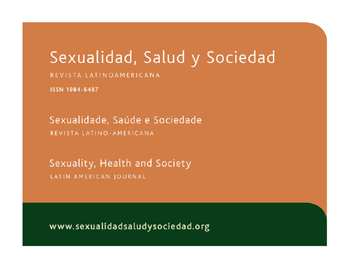The articles and book reviews in this new issue of Sexuality, Health, and Society Latin American Journal address the struggles over the meanings of terms that--because of their ethical and political potential--are crucial to the field of gender and sexuality studies: family, life, sex, transsexuality, human rights, gay and lesbian parenting.
The piece by Lynn Morgan analyzes the strategic torsion performed in the apparently paradoxical granting of the Rosa Parks human rights award to an Argentinean female senator who was openly pro-life, and against the recent legal reform movement crystallized, for example, in the national Sex Education Act, the Equal Marriage Act, the Gender Identity Act, and the Assisted Insemination Act. Morgan highlights the symbolic displacement operated by groups linked to conservative sectors of the Catholic Church, whereby the argument of a Latin American-specific Human Rights tradition is strategically mobilized. Until now in our region Human Rights have been identified with progressive social and political movements.
In contrast to Morgan's observation--and in dialog with Fortuna Pontes' review-, the article by Guido Vespucci offers important interpretive keys to another torsion produced, also in Argentina, by the instrumentation of the "we are family" discourse, traditionally tied to conservative political projects, in claims for legal recognition by LGBT organizations. The complexity of a struggle over meanings emerges again in this paper in the form of "family" attributes hardly explained by their simple classification as part of a "normalizing turn."
In Rodrigo Borba's paper--with an interesting echo Jurandir Freire Costa's review--, the polysemy of the struggles over the depatologization of homosexuality makes itself present in terms of the micro-resistances, at least potential, by subjects who, in order to undergo the transsexualizing processes, must face biomedical discourse and institutional regulations. In their hospital interactions, they would homogenize their childhood narratives in order to ground the persistence of a gender identity. In the search for resistances to medical and otherwise frameworks, Robin Cavagnoud explores a red-light area in the south de Lima. She shows the violence exercised upon travesti youths and adolescents who practice prostitution by policemen and their clients; as well as travestis' reply strategies to keep the sex trade going to secure their survival.
Based on interviews with students at a Brazilian university who self-identify as homosexual, the Thiago Soliva & João Da Silva Jr. explore other experiences lived by youths, in this case, in their process of coming out process as sexual "dissidents". In this case, focus is placed on family interactions, which show concrete ways in which violence is exercised against these youths; and how they cope with suffering inflicted upon them, resisting the coercions they would find in their homes in order to adequate to the hegemonic sexual norm.
Another contribution to the consolidation of a discussion on sexual and reproductive rights in Latin America over the past few decades is the epistemic perception of the political potential of scientific classifications--either from science, psychoanalysis, sexology, or sexual medicine. In that direction, the instigating article by Fabíola Rohden, Jane Russo & Alain Giami seeks to remedy a lack of interest about the field of sexology and sexual medicine, on behalf of critical sexuality studies in Latin America. Crucially, they argue that considering the medicalization of sexuality excusively as a form of depoliticizacion blinds the recognition of particular aspects of that process, such as the production of new subjects in the sphere of consumption. The authors highlight the political character of underlying conceptions, as well as that of the consumption of bio-technologies in the domain of sexuality.
In closing, the article by David De Jesús-Reyes & Esmeralda González Almontes revises the theoretical assumptions giving support to investigations on teenage pregnancy which have contributed to its constitution as a social, economic and/or demographic problem. Without rejecting those assumptions, the authors survey the Mexican and Latin American literature on the subject in order to broaden the analytical frameworks available to address this phenomenon.
Publication Dates
-
Publication in this collection
Aug 2014

